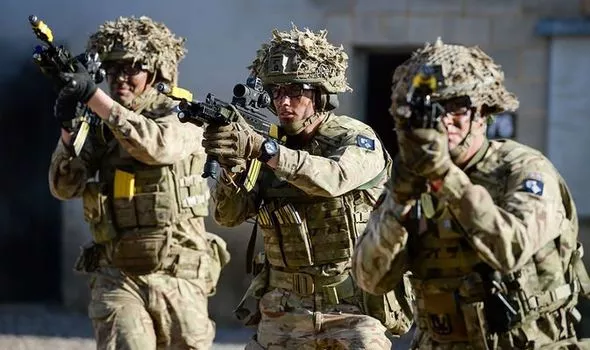Introduction:
The annals of history are adorned with the stories of mighty empires and legendary military campaigns, and at the forefront of many pivotal moments stands the British Army, a bastion of strategic brilliance. From the battlefields of the Napoleonic Wars to the trenches of World War I and the contemporary theaters of conflict, the British Army’s tactical acumen has left an indelible mark on the course of human history.
The Napoleonic Wars:
One of the earliest chapters in the British Army’s saga of strategic brilliance unfolded during the Napoleonic Wars. Facing the military genius of Napoleon Bonaparte, the British Army, under the command of leaders like the Duke of Wellington, demonstrated a remarkable ability to adapt and outmaneuver the enemy. The Battle of Waterloo stands as a testament to British strategic acuity, marking the decisive moment that halted Napoleon’s ambitions and reshaped the geopolitical landscape of Europe.
Colonial Campaigns:
The sun never set on the British Empire, and the British Army played a pivotal role in establishing and maintaining imperial dominance. Through a combination of disciplined military tactics and strategic maneuvering, the British Army navigated diverse terrains to secure and expand colonial territories. The Boer War and Indian campaigns showcased the adaptability and resilience that became hallmarks of British military strategy.
World Wars:
The 20th century bore witness to two global conflicts that tested the mettle of nations and their armed forces. In both World War I and World War II, the British Army demonstrated strategic brilliance on multiple fronts. From the trenches of the Western Front to the North African deserts and the jungles of Southeast Asia, British commanders exhibited a keen understanding of military strategy, often turning the tide of battle in favor of the Allied forces.
Post-World War II Era:
The end of World War II marked a shift in global dynamics, and the British Army continued to play a vital role in shaping the post-war world order. The strategic brilliance of British military leaders was evident in the successful execution of operations such as the Berlin Airlift and their contributions to the formation of NATO. The ability to navigate complex geopolitical challenges showcased the enduring relevance of the British Army on the world stage.
Contemporary Operations:
As the world entered the 21st century, the British Army remained at the forefront of international peacekeeping and conflict resolution efforts. From the Falklands to the Gulf War and more recent engagements in Afghanistan and Iraq, the British Army’s strategic brilliance continued to evolve. Emphasizing joint operations, technological advancements, and adaptive tactics, the British military demonstrated a commitment to addressing modern challenges with unwavering resolve.
Conclusion:
The history of the British Army is a chronicle of strategic brilliance, a narrative woven with the threads of adaptability, resilience, and a deep understanding of the ever-changing nature of warfare. Whether on the fields of historic battles or in contemporary conflict zones, the British Army’s legacy is one of shaping the course of history through strategic acumen. As we reflect on the annals of military history, the enduring influence of the British Army stands as a testament to the indomitable spirit that has characterized this storied institution throughout the ages.

